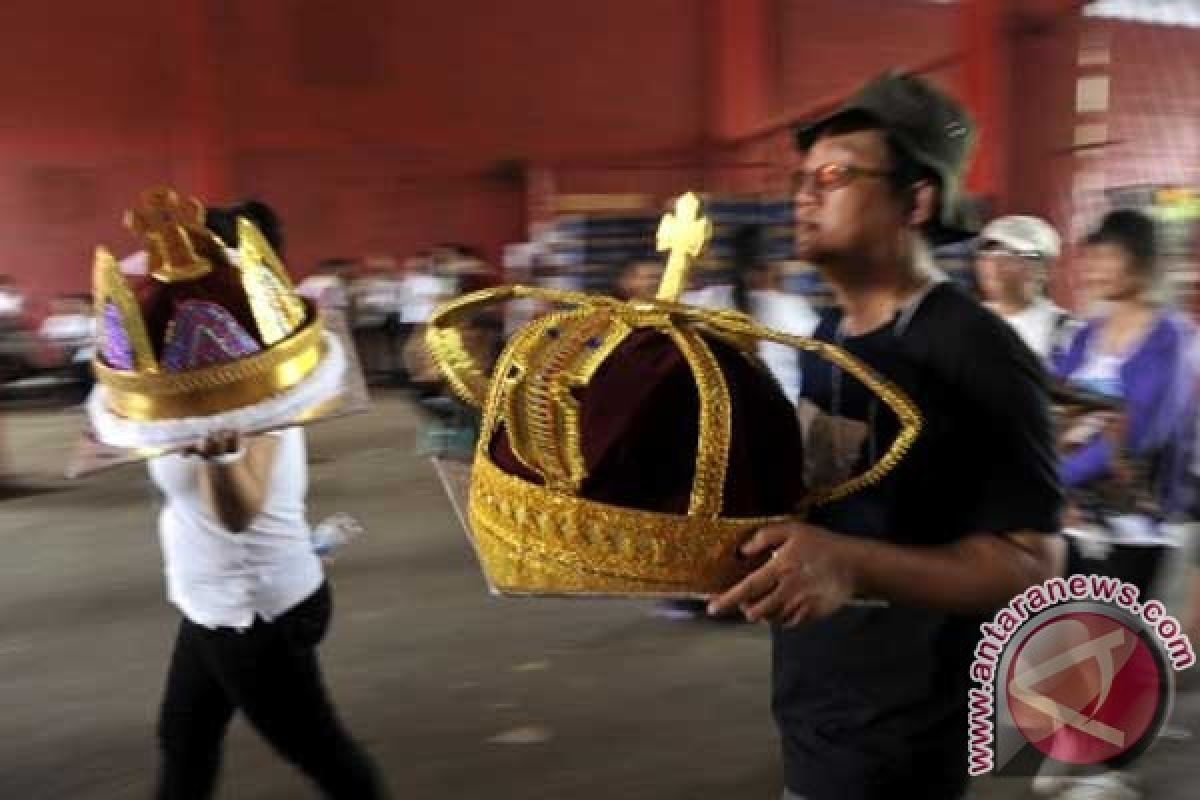"Christians and Muslims do not have to live in hostility."Jakarta (ANTARA News) - Religious harmony and tolerance could be truly experienced at the World Prayer Assembly (WPA-2012) in Jakarta.
On that peaceful and blissful Thursday evening of May 17, 2012, more than 100,000 believers of all Christian denominations, including 20,000 children and an equal number of youths, gathered at Bung Karno National Sport Stadium for a massive prayer meeting.
The prayer meeting is broadcasted live to 200 cities of Indonesia, where there are similar gatherings, estimated at a total of 5 million.
With the Global Day of Prayer broadcast through satellite TV, tens of millions of people worldwide would be united in their prayers in an effort to shape the future of the world.
"With the World Prayer Assembly 2012, let us show the world there is strong religious harmony and tolerance in Indonesia," Coordinating Minister for People`s Welfare Agung Laksono said on behalf of the Government of Indonesia.
"The world can see that Indonesia can be the centre of prayer for peace and harmony of nations irrespective of their colour, religion, and cultural background," Agung stated.
WPA 2012 committee chairman Rev Bambang Wijaya said the government supported the event, which was being co-hosted by the leaders of Indonesian and Korean prayer movements with support from international prayer networks such as the International Prayer Council (IPC) and the Global Day of Prayer.
He added the Indonesian and Korean prayer movements were two of the most powerful prayer forces in the world.
"The World Prayer Assembly will be a `new wave` to strategically connect and empower the global prayer and mission movements, as Christian leaders from up to 220 nations connect through united prayer, leading to spirit-inspired action to transform our world," Bambang Wijaya said.
The ultimate goal of the World Prayer Assembly is twofold: to see "The knowledge of the glory of the Lord filling the earth as the waters cover the sea (Habakkuk 2:14) and the fulfilment of Jesus` prayer that "His followers become one so the world will know He is its Creator and Savior (John 17:21).
Bambang Wijaya said the WPA 2012 would also encourage the next generation to become excellent leaders "for Christ`s global prayer and mission movement, as children and youth take their positions as equal partners in helping to lead it".
According to www.wpa2012.org, John Robb , the facilitator for the International Coordinating Team and the World Prayer Assembly Chairman of the International Prayer Council, said the unity of the Church in Indonesia was remarkable and the country had earned the honour of hosting the WPA event.
"We`ve also been impressed by the remarkable favour of the Lord, with the political and religious authorities in this largest Muslim-populated nation," Robb said.
"Christians and Muslims do not have to live in hostility. Through prayer and love they can have a good, even close, relationship of respect and affection," he added.
Robb said the Indonesian Church had shown this to be possible by pursuing reconciliation and goodwill with the Muslims.
"What a lesson for the rest of the world! The unity of their leadership across denominations and ethnic identities, their genuine humility before the Lord, and passion to pray for their land and our world, have positioned them well to host the WPA-2012," he noted.
In 2005, the Bung Karno National Stadium was packed with more than 100,000 people for a four-hour prayer meeting, while another 20,000 stood outside, unable to get seats.
Often cited as an example to the rest of the world, Indonesia`s religious harmony and tolerance remains an important pillar of the nation`s existence.
Indonesia as a pluralist state was formed on the basis of an agreement among all elements of the country`s society, from various religious and ethnic backgrounds.
No wonder, at a function to open the 10th Indonesian Mahasabha Parisada Hindu Dharma meeting in the Indonesian resort island of Bali in October 2011, Vice President Boediono called on all religious communities in the country to continue cultivating religious tolerance and harmony.
"Religious harmony and tolerance, as well as social and cultural resilience should continue to be maintained, strengthened, and nurtured," he said.
The vice president pointed out all religions taught the importance of mutual understanding, respect, and love, adding that the founders of the Indonesian nation were well aware of this fact.
According to Boediono, the Indonesian society was pluralist because it was a composition of people with different religious beliefs, which meant that a certain religious group could be a majority in one region but a minority in another.
"Thus in a pluralist country, tolerance means the majority group can protect the minority, and the minority group should be wise in determining their place in society," the vice president said.
(T.O001/INE/H-YH/KR-BSR)
Reporter: by Otniel Tamindael
Editor: Priyambodo RH
Copyright © ANTARA 2012





